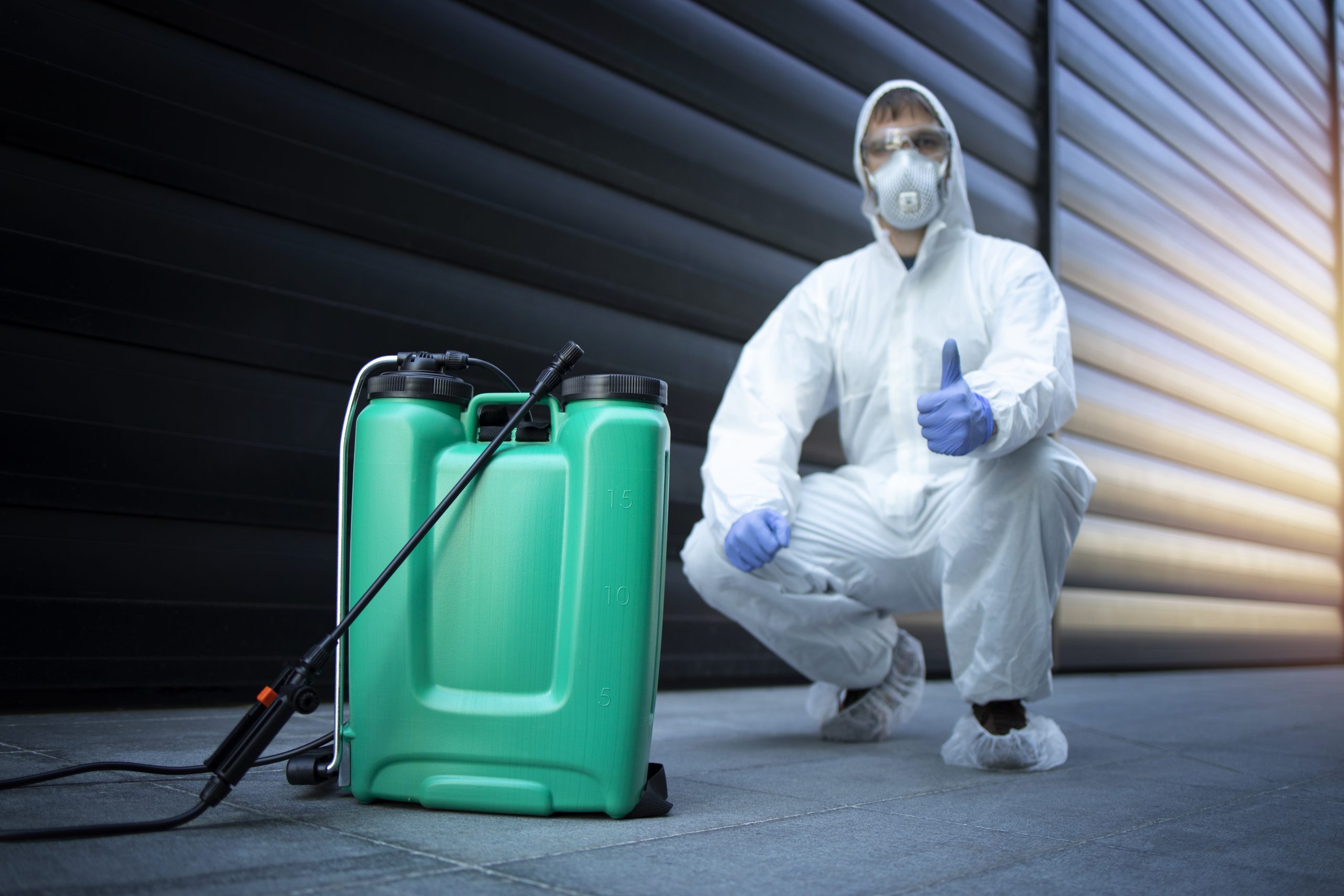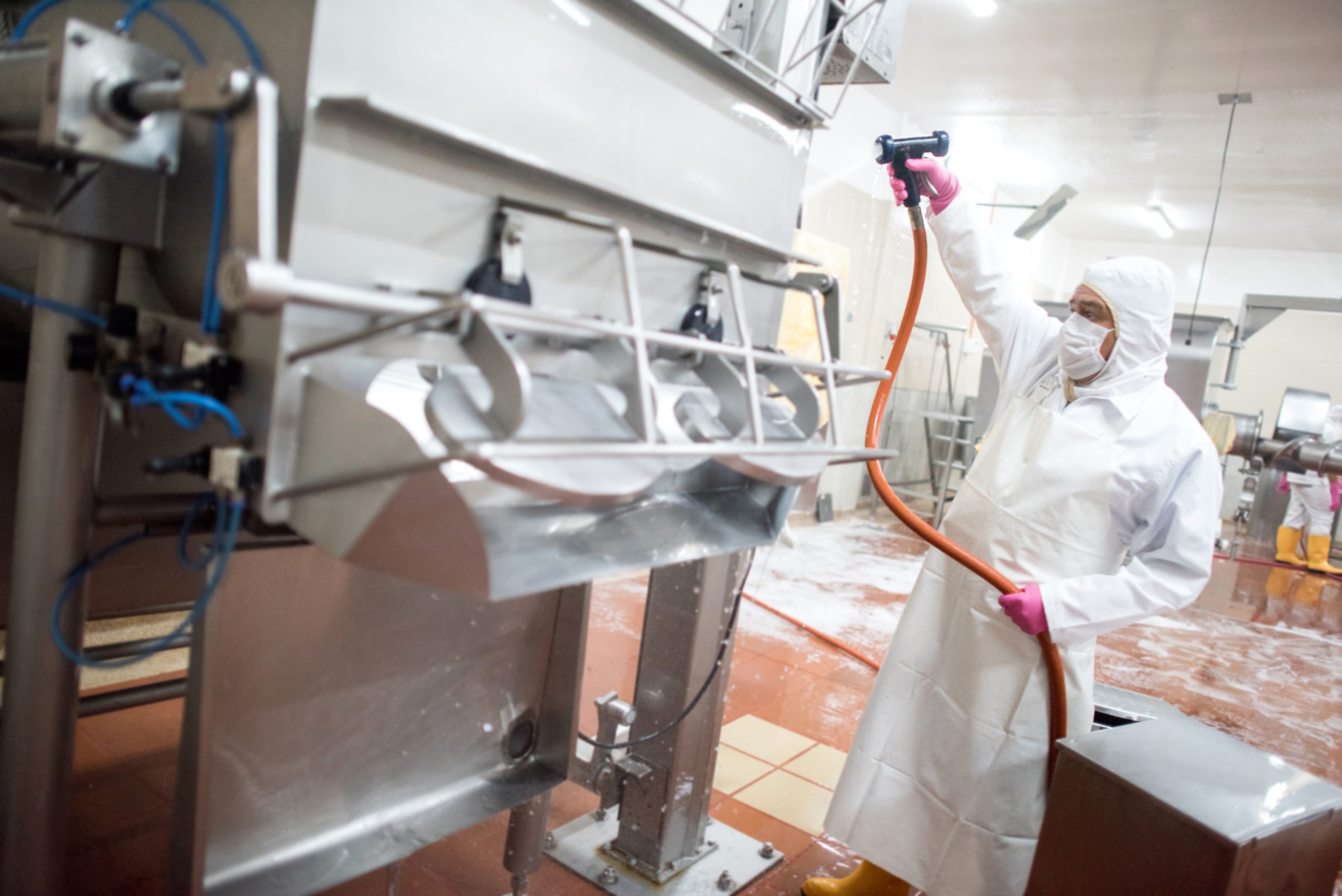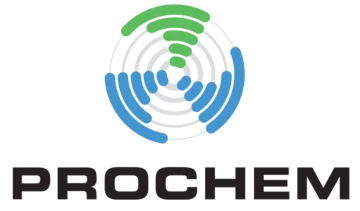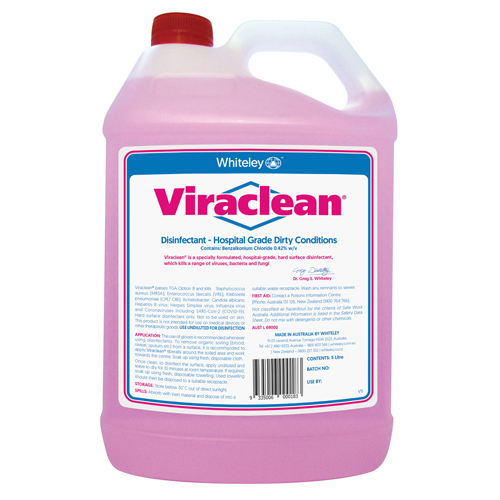
Blog
- 26September
Why you should consider foam cleaning

Why you should consider foam cleaning
Cleanliness is not optional. Not only is it a regulatory requirement in many cases, but even where it isn’t, the reputational important of being seen as a company that doesn’t compromise on cleanliness is impossible to underestimate.
At the same time, businesses are always looking for efficiencies to help streamline their operations. One such solution that has gained tremendous popularity is foam cleaning. In Australia, Prochem stands as the undisputed leader in mobile foamer technology, offering a range of products that have revolutionised the way businesses maintain cleanliness and hygiene. Need proof? Here are just some of the ways that foam cleaning presents a significant opportunity for businesses. If you have any questions after, then feel free to reach out to the expert team at Prochem. We have decades of experience in cleaning options and can help you decide if foamers are right for your business.
Understanding Foam CleaningFoam cleaning, also known as foaming or foam sanitising, is a method of cleaning that has been growing in popularity across those industries that need to have an uncompromising approach to cleanliness standards.
The basic reason for this is simple: unlike traditional cleaning methods that involve spraying liquid detergents or disinfectants, foam cleaning creates a dense foam that adheres to surfaces for longer periods, allowing for better cleaning and disinfecting results.
This foam is generated using specialised equipment known as foamers or foam generators. These machines mix water, detergent, and air, producing a thick, luscious foam that can be applied to surfaces with ease. The foam's unique properties enable it to cling to vertical and horizontal surfaces, and that’s how the technology provides better coverage and longer contact time for cleaning agents to work effectively.
Why Foam Cleaning Is Such A Popular OptionThere are five primary drivers that are pushing decision-makers across a wide range of industries towards foam cleaning as a better way to manage hygiene:
- Enhanced Cleaning Efficiency: Foam cleaning offers superior cleaning efficiency compared to traditional methods. The thick foam can penetrate and lift dirt, grime, and contaminants from surfaces more effectively, resulting in cleaner and more hygienic environments.
- Reduced Chemical Consumption: Foam cleaning requires fewer cleaning agents due to its excellent coverage and adhesion properties. This leads to cost savings on detergents and disinfectants while reducing the environmental impact.
- Time Savings: The longer contact time of foam cleaning means that less manual scrubbing or wiping is needed, saving both time and labour costs. This makes it an attractive option for businesses looking to optimise their cleaning processes.
- Consistency: Foam cleaning ensures consistent and even coverage of cleaning agents, reducing the chances of missed spots or uneven cleaning. This is crucial for industries like food processing and healthcare, where hygiene is paramount.
- Versatility: Foam cleaning can be applied across various industries and surfaces, from kitchen floors and equipment to vehicle exteriors and building facades. It adapts to the specific needs of each application, making it a versatile choice for businesses.
When it comes to foam cleaning technology in Australia, Prochem is the undisputed leader. With a legacy spanning decades, Prochem has earned its reputation for quality, reliability, and innovation.
Here's why Prochem is the best choice for local businesses seeking mobile foamer technology:
- Product Range: Prochem offers a comprehensive range of foam cleaning equipment to suit various business needs. In particular, our portable foamers are popular, for their versatility without compromise to the cleaning strength that they enable.
- Quality and Durability: Prochem only stock products that are renowned for their build quality and durability. These machines are designed to withstand the rigors of daily use in demanding environments, ensuring a long lifespan and excellent return on investment.
- Local Support: Prochem understands the unique requirements of the Australian market and provides exceptional local support. Whether it's technical assistance, maintenance, or spare parts, Prochem ensures that businesses have access to prompt and reliable services.
- Customisation: Prochem recognises that different businesses have different needs. We offer customisation options to tailor their foam cleaning solutions to specific industry requirements, ensuring the best results for each application.
- Training and Education: Prochem doesn't just sell equipment; our expertise in cleaning is also available to customers as an additional resource to help them make the most of their foam cleaning technology. This empowers businesses to achieve optimal cleanliness and hygiene standards.
Foam cleaning is a transformative cleaning method that offers businesses significant advantages in terms of efficiency, cost savings, and hygiene. Prochem in Australia stands as the premier choice for businesses seeking mobile foamer technology. Due to this, Prochem is the partner of choice for businesses looking to embrace the foam cleaning revolution and elevate their cleaning standards to new heights.
Error: Contact form not found.
Recent Articles
Cleaning chemicals are an essential part of maintaining a clean and hygienic environment in our homes, workplaces, and public spaces. It is ironic, to an extent, that these same chemicals that are so critical to creating healthy environments can also pose serious health and environmental risks if not handled, stored, and disposed of properly.
If you’re responsible for cleaning an area, than you’re almost certainly going to have go through training in the proper handling and management of chemicals. However, it is worthwhile for everyone at the organisation – from the decision makers right down to the individual employees, to have a basic understanding of these things. Not necessarily because they’ll be handling the chemicals themselves, but rather because it’s important to be aware of the risk signs and be able to flag them.
A 101 Introduction To Cleaning Chemicals
Cleaning chemicals come in various forms, including liquids, powders, and sprays, and they contain a wide range of ingredients, many of which are abrasive and can be hazardous. Common cleaning chemicals may include disinfectants, detergents, solvents, and bleaches. Improper handling of these chemicals can lead to: Health RisksManycleaning chemicals can cause skin and eye irritation on contact, respiratory problems if inhaled, and even more severe health issues if they come into contact with the human body. In extreme cases they can be life-threatening. For this reason, any organisation that uses these chemicals has an obligation to see to their safe application.
Environmental ImpactIn addition to being potentially dangerous to humans, chemicals can damage the environment around them when poorly handled too. This includes the potential to contaminate soil, water, and air. Mishandled chemicals often find their way into water streams, where they become toxic to aquatic life, harm ecosystems, and contribute to pollution.
Regulatory ComplianceBeyond the moral and ethical obligation to handle chemicals correctly, there’s also a legal concern, which makes responsible handling a critical business obligation. Government regulations and guidelines exist to ensure the safe use, storage, and disposal of cleaning chemicals. Failing to comply with these regulations can result in fines, legal consequences, and reputational damage for businesses.
With those things in mind, the next question becomes “how can you handle cleaning chemicals safely?” Different chemicals can affect people and the environment differently, and be dangerous in different ways, so it’s important to take the time to understand the chemical first, before you begin using it.
Read Labels and InstructionsAlways start by carefully reading the labels and instructions on cleaning chemical containers. Manufacturers provide valuable information on proper usage, safety precautions, and first-aid measures in case of accidental exposure. Following these guidelines is crucial, and, equally critical, these guidelines should be readily available so that anyone, including those that aren’t using the chemical, can quickly find the information they need if they need it.
Use Protective GearWhen handling cleaning chemicals, use appropriate personal protective equipment (PPE) such as gloves, safety goggles, and face masks. This gear will shield you from potential skin, eye, and respiratory irritation or harm. Prochem can help you determine what PPE you will need for any given chemical, and can help to make sure that all equipment remains in working order. As protective gear is likely to come into contact with these chemicals, they may well need regular replacing.
VentilationWhenever possible, work in well-ventilated areas to minimise exposure to fumes and vapours. Open windows and doors or use exhaust fans to improve airflow. If an area is not particularly well-ventilated, then you might need to consider alternative chemicals or risk management strategies.
Avoid Mixing ChemicalsMixing cleaning chemicals can result in dangerous reactions, releasing toxic gases or causing explosions. Never mix different products unless the label specifically indicates it's safe to do so. It goes without saying that you should also store these chemicals in such a way that accidental mixing cannot occur.
Label Secondary Containers
If you transfer cleaning chemicals to secondary containers, make sure to label them clearly. Use waterproof labels and include the product name, dilution ratio (if applicable), and any safety instructions.
Storing Cleaning Chemicals Safely
Almost as important in safely using chemicals is making sure that you safely store them. The team at Prochem are experts in all the chemicals that we stock, and we can help you understand the best storage strategy. However, some basic universal rules include:
Separate and SegregateStore cleaning chemicals away from food, beverages, and medications. If at all possible have a dedicated storage area that is also secure, so that only authorised people can access it (and the chemicals).
Temperature ControlKeep cleaning chemicals in a cool, dry place and away from direct sunlight or heat sources. Extreme temperatures can affect their stability and efficacy. Likewise, chemicals tend to do poorly in overly humid conditions, so many sure that the area where they are stored is well ventilated and controlled for moisture.
Secure ContainersEnsure that cleaning chemical containers are tightly sealed to prevent leaks and spills. Use appropriate containers with secure lids, and always keep them upright. In most cases the containers the chemicals come in will be the best way to store them. However, if this is not practical for whatever reason, make sure you’re certain that the container is certified to hold chemicals before you use it for that purpose.
ChildproofingFor any environment which features children (or pets, or elderly patients with mental health issues), make sure that the chemicals are stored in such a way that accidental access isn’t going to happen.
Disposing of Cleaning Chemicals Responsibly
The final, critical consideration when handling chemicals is how they are disposed of. This includes the containers that they’re kept in, since even trace elements of some chemicals can be a serious health hazard.
Follow Local RegulationsThere are very likely to be local, state, and/or federal guidelines concerning how the chemicals that you’re managing can be disposed of. If in doubt you should check before you begin the disposal process.
RecyclingBe aware that it might be possible to recycle empty cleaning chemical containers according to local recycling programs. This can be an ideal option because the local recycling plant will know how to properly handle the container. However, even so, make sure that you rinse the containers thoroughly before recycling to remove any residue.
Hazardous Waste CollectionIf your cleaning chemicals are considered hazardous waste, take advantage of hazardous waste collection events or facilities. These will be government-run and allow you to shift the burden to groups that are better able to handle them.
Never Pour Down Drains or ToiletsThis one should be self-explainatory, but you would be amazed by just how much hazardous waste does still find its way into wastewater systems. Don’t do it. Not only is it illegal, but it puts the entire community’s health at risk.
You might never need to handle the chemicals yourself, but by knowing about these practical tips for handling, storing, and disposing of cleaning chemicals responsibly, you can avoid making mistakes and contribute to a safer environment for all. And, remember, when in doubt contract the team at Prochem. We have the expertise in these matters and can help guide you through any questions you may have.
Cleanliness is not optional. Not only is it a regulatory requirement in many cases, but even where it isn’t, the reputational important of being seen as a company that doesn’t compromise on cleanliness is impossible to underestimate.
At the same time, businesses are always looking for efficiencies to help streamline their operations. One such solution that has gained tremendous popularity is foam cleaning. In Australia, Prochem stands as the undisputed leader in mobile foamer technology, offering a range of products that have revolutionised the way businesses maintain cleanliness and hygiene. Need proof? Here are just some of the ways that foam cleaning presents a significant opportunity for businesses. If you have any questions after, then feel free to reach out to the expert team at Prochem. We have decades of experience in cleaning options and can help you decide if foamers are right for your business.
Understanding Foam CleaningFoam cleaning, also known as foaming or foam sanitising, is a method of cleaning that has been growing in popularity across those industries that need to have an uncompromising approach to cleanliness standards.
The basic reason for this is simple: unlike traditional cleaning methods that involve spraying liquid detergents or disinfectants, foam cleaning creates a dense foam that adheres to surfaces for longer periods, allowing for better cleaning and disinfecting results.
This foam is generated using specialised equipment known as foamers or foam generators. These machines mix water, detergent, and air, producing a thick, luscious foam that can be applied to surfaces with ease. The foam's unique properties enable it to cling to vertical and horizontal surfaces, and that’s how the technology provides better coverage and longer contact time for cleaning agents to work effectively.
Why Foam Cleaning Is Such A Popular OptionThere are five primary drivers that are pushing decision-makers across a wide range of industries towards foam cleaning as a better way to manage hygiene:
- Enhanced Cleaning Efficiency: Foam cleaning offers superior cleaning efficiency compared to traditional methods. The thick foam can penetrate and lift dirt, grime, and contaminants from surfaces more effectively, resulting in cleaner and more hygienic environments.
- Reduced Chemical Consumption: Foam cleaning requires fewer cleaning agents due to its excellent coverage and adhesion properties. This leads to cost savings on detergents and disinfectants while reducing the environmental impact.
- Time Savings: The longer contact time of foam cleaning means that less manual scrubbing or wiping is needed, saving both time and labour costs. This makes it an attractive option for businesses looking to optimise their cleaning processes.
- Consistency: Foam cleaning ensures consistent and even coverage of cleaning agents, reducing the chances of missed spots or uneven cleaning. This is crucial for industries like food processing and healthcare, where hygiene is paramount.
- Versatility: Foam cleaning can be applied across various industries and surfaces, from kitchen floors and equipment to vehicle exteriors and building facades. It adapts to the specific needs of each application, making it a versatile choice for businesses.
When it comes to foam cleaning technology in Australia, Prochem is the undisputed leader. With a legacy spanning decades, Prochem has earned its reputation for quality, reliability, and innovation.
Here's why Prochem is the best choice for local businesses seeking mobile foamer technology:
- Product Range: Prochem offers a comprehensive range of foam cleaning equipment to suit various business needs. In particular, our portable foamers are popular, for their versatility without compromise to the cleaning strength that they enable.
- Quality and Durability: Prochem only stock products that are renowned for their build quality and durability. These machines are designed to withstand the rigors of daily use in demanding environments, ensuring a long lifespan and excellent return on investment.
- Local Support: Prochem understands the unique requirements of the Australian market and provides exceptional local support. Whether it's technical assistance, maintenance, or spare parts, Prochem ensures that businesses have access to prompt and reliable services.
- Customisation: Prochem recognises that different businesses have different needs. We offer customisation options to tailor their foam cleaning solutions to specific industry requirements, ensuring the best results for each application.
- Training and Education: Prochem doesn't just sell equipment; our expertise in cleaning is also available to customers as an additional resource to help them make the most of their foam cleaning technology. This empowers businesses to achieve optimal cleanliness and hygiene standards.
Foam cleaning is a transformative cleaning method that offers businesses significant advantages in terms of efficiency, cost savings, and hygiene. Prochem in Australia stands as the premier choice for businesses seeking mobile foamer technology. Due to this, Prochem is the partner of choice for businesses looking to embrace the foam cleaning revolution and elevate their cleaning standards to new heights.
In today's increasingly hygiene-conscious world, effective sanitization has taken center stage. One sanitizing ingredient that has garnered significant attention is Benzalkonium Chloride (BZK). This comprehensive blog post dives deep into the world of Benzalkonium Chloride, exploring its remarkable effectiveness, versatility, and its role in ensuring optimal hygiene in various settings. Discover why BZK has become a popular choice for germ control and how it excels in both efficacy and gentleness.
- Understanding Benzalkonium Chloride (BZK):
Benzalkonium Chloride, a powerful quaternary ammonium compound, is widely recognized for its antimicrobial properties. As a key ingredient in sanitizers and disinfectants, BZK's unique chemical structure disrupts microorganisms' cell membranes, incapacitating them and leading to their destruction.
- Unparalleled Efficacy Against Germs:
BZK exhibits outstanding effectiveness against a broad spectrum of pathogens, making it a reliable choice for sanitization. Extensively tested and proven effective against common bacteria (e.g., Staphylococcus aureus, Escherichia coli) and viruses (e.g., Influenza A, Herpes simplex), BZK stands as a versatile sanitizer, ideal for diverse environments ranging from healthcare facilities to households.
- Gentle on the Skin:
What sets Benzalkonium Chloride-based sanitizers apart is their gentle nature. Unlike alcohol-based sanitizers that can cause dryness and irritation, BZK-based sanitizers are renowned for their mildness. They retain the skin's natural oils, preserving moisture balance and preventing dryness. This feature makes BZK sanitizers perfect for individuals with sensitive skin or those requiring frequent sanitization throughout the day.
- Persistence and Residual Effects:
BZK offers a prolonged antimicrobial effect on surfaces, even after application. By forming a protective barrier, BZK inhibits the growth and survival of microorganisms, providing enduring protection against germs. This residual effect makes it an invaluable choice for high-touch areas, such as doorknobs, handrails, and electronic devices, requiring ongoing defense against harmful pathogens.
- Versatile Applications:
Benzalkonium Chloride finds application across a wide range of settings due to its versatility. It plays a crucial role in healthcare facilities, disinfecting medical equipment, surfaces, and instruments. The food industry relies on BZK for sanitizing food processing equipment and utensils. Additionally, it can be found in household sanitizers, personal care products, and even swimming pool disinfectants. BZK's adaptability ensures optimal hygiene and inhibits the spread of infections across diverse sectors.
- Stability and Compatibility:
BZK-based sanitizers are celebrated for their stability and compatibility with different ingredients. With a longer shelf life than some other sanitizers, they provide a reliable long-term solution. BZK can be seamlessly combined with moisturizers and fragrances without compromising efficacy, allowing manufacturers to create customized formulations tailored to specific needs while maintaining BZK's potent sanitizing power.
- Safety and Regulatory Approvals:
Benzalkonium Chloride has undergone extensive safety testing and carries approvals from reputable regulatory bodies like the U.S. Food and Drug Administration (FDA) and the European Chemicals Agency (ECHA). When used as directed, it is considered safe and its long history of use further confirms its safety profile.
Benzalkonium Chloride emerges as a powerful and versatile sanitizer, delivering potent germ-fighting properties coupled with gentle care for the skin. Its broad spectrum efficacy, enduring protection, and compatibility make it an ideal choice for maintaining optimal hygiene in various environments. Whether in healthcare facilities, homes, or the food industry, BZK-based sanitizers provide a reliable solution for effective germ control. With proven efficacy, remarkable safety, and a growing role in safeguarding our health, Benzalkonium Chloride stands as a crucial player in comprehensive sanitization and the prevention of infectious diseases.

